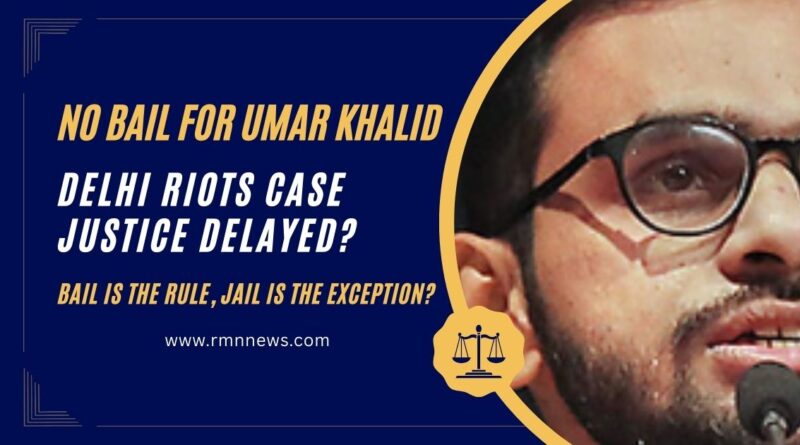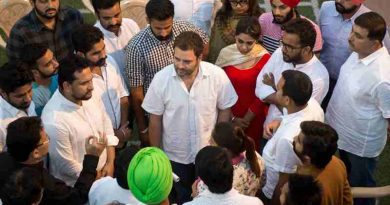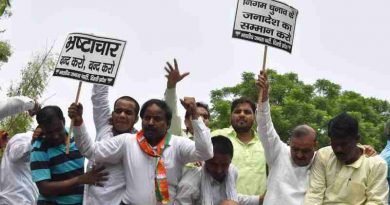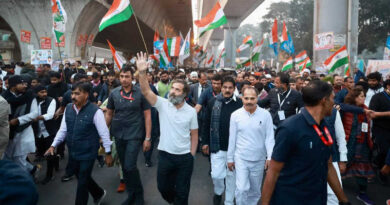Delhi High Court Rejects Bail for 2020 Riots Accused Umar Khalid and Sharjeel Imam. Judgment Analysis
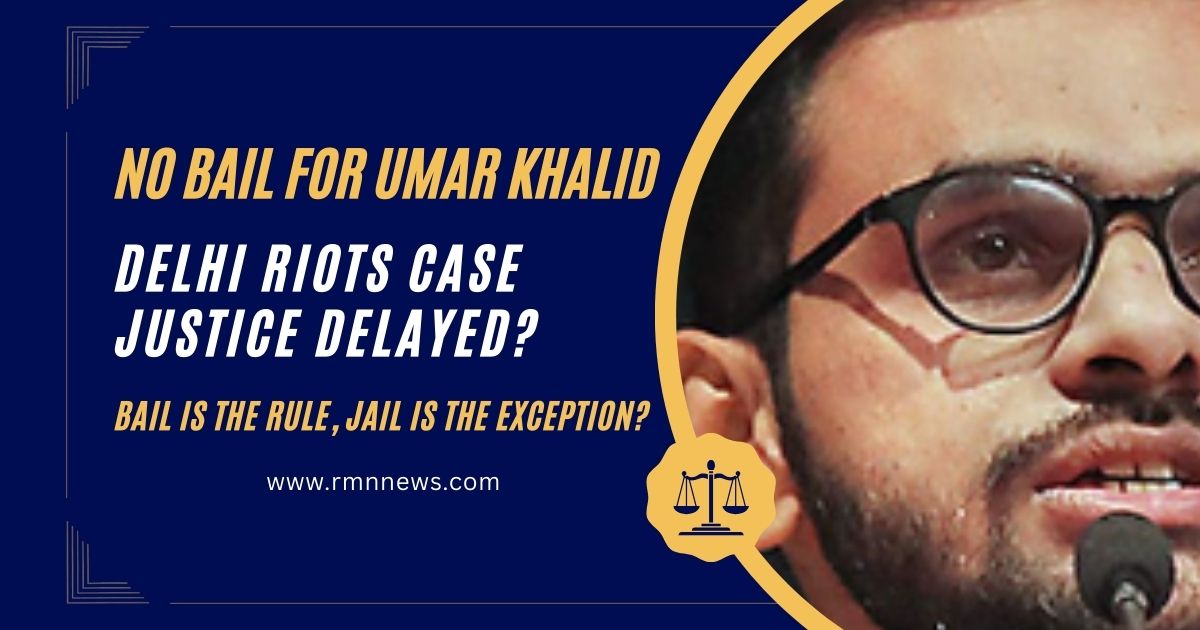
Delhi High Court Rejects Bail for 2020 Riots Accused Umar Khalid and Sharjeel Imam. Judgment Analysis
The repeated denial of bail to Umar Khalid and others highlights significant concerns regarding India’s bail system, which is accused of inconsistent application of legal principles.
By Rakesh Raman
New Delhi | September 3, 2025
New Delhi, September 2, 2025 – The Delhi High Court on Tuesday upheld the denial of bail to activists and former Jawaharlal Nehru University (JNU) students Umar Khalid and Sharjeel Imam, along with seven others, in connection with the 2020 Delhi riots larger conspiracy case. The bail pleas, which had been pending since 2022, were dismissed by a bench of Justices Navin Chawla and Shalinder Kaur. The activists’ lawyer indicated that the order would be challenged in the Supreme Court.
The accused, including Mohd Saleem Khan, Shifa Ur Rehman, Athar Khan, Meeran Haider, Shadab Ahmed Abdul Khalid Saifi, and Gulfisha Fatima, are charged under the Unlawful Activities (Prevention) Act (UAPA). Delhi Police have labeled Khalid, Imam, and the others as the “masterminds” of the communal violence that occurred in northeast Delhi in February 2020, resulting in over 50 deaths and more than 700 injuries. The unrest stemmed from protests against the Citizenship Amendment Act (CAA).
Umar Khalid has been incarcerated since September 2020, with his bail applications reportedly rejected at least 14 times during his five years in jail, though he received a brief seven-day interim bail last December for a family wedding. Sharjeel Imam has been incarcerated for approximately 5 years and 7 months at the time of this judgment, having been arrested on January 28, 2020, following alleged provocative speeches made during anti-CAA/NRC protests.
RELATED RMN NEWS REPORTS
[ Delhi High Court Upholds Bail Denial for Umar Khalid, Sharjeel Imam in 2020 Riots Conspiracy Case ]
[ 🔊 Sharjeel Imam Bail Judgment: Audio Analysis ]
[ Court Orders FIR Against Delhi Law Minister Kapil Mishra in 2020 Riots Case ]
During the bail hearing, the activists argued that they had already spent more than four years in custody, citing the slow pace of the trial as grounds for bail. Khalid maintained that his presence in WhatsApp groups with co-accused did not constitute criminality, and no incriminating materials were recovered from him. Imam contended he was disconnected from Khalid and others, denying involvement in a conspiracy and stating his speeches never incited unrest.
However, the prosecution, led by Solicitor General Tushar Mehta, strongly opposed bail, arguing the riots were “planned in advance with a sinister motive” and a “well-thought-out conspiracy” to defame India globally. Mehta stated, “If you do anything against your nation, you better be in jail till you are acquitted”.
The High Court’s decision critically hinged on the stringent conditions of UAPA Section 43D(5), which overrides the general legal principle that “Bail is the rule, jail is the exception”. Under the UAPA, bail can only be granted if the court believes there are reasonable grounds for believing that the accusation against the person is “prima facie untrue”. This reverses the standard legal presumption of innocence, instead presuming the truth of the accusation.
The court provided key reasons for denying bail to Sharjeel Imam and Umar Khalid:
- Prima Facie Truth of Allegations: The court found that the prosecution’s material, including Imam’s speeches calling for ‘chakka jam’ (road blockades) and witness statements, was sufficient to conclude that the accusations were “prima facie true”. The speeches were deemed to be aimed at creating public disorder and were a crucial part of the alleged conspiracy.
- Rejection of Parity with Co-Accused: The court explicitly rejected the argument that Imam deserved bail on grounds of parity with co-accused like Devangana Kalita and Natasha Narwal, who had been granted bail. The court viewed Sharjeel Imam’s role as “distinct,” portraying him as a primary instigator and ideologue whose speeches allegedly mobilized crowds and laid the groundwork for the riots.
- Delay in Trial and Prolonged Incarceration: While acknowledging the long period of incarceration, the court did not consider it a sufficient ground for granting bail in this case. The judgment noted the complexity of the issues and the trial progressing at a natural pace, giving more weight to the severity of the UAPA charges than the delay.
The repeated denial of bail to Umar Khalid and others highlights significant concerns regarding India’s bail system, which is accused of inconsistent application of legal principles. The principle of “Bail Is the Rule, Jail Is the Exception” is often asserted for influential individuals, including rich businessmen and politicians, even those accused under the UAPA, but is not uniformly applied. Many political prisoners are reportedly languishing in Indian jails, with a “bribe for bail” culture being pervasive.
Numerous high-profile politicians from various parties have been granted bail despite serious accusations:
- Rahul Gandhi and Sonia Gandhi (Indian National Congress) in the National Herald case.
- P. Chidambaram (Indian National Congress) in the INX Media money laundering case.
- D.K. Shivakumar (Indian National Congress) in a money laundering case.
- Hemant Soren (Jharkhand Mukti Morcha) in an alleged land scam case.
- Arvind Kejriwal (Aam Aadmi Party) in the Delhi Excise Policy scam, granted interim and regular bail.
- Manish Sisodia, Satyendar Jain, and Sanjay Singh (Aam Aadmi Party) in the Delhi Excise Policy case.
- Lalu Prasad Yadav, Tejashwi Yadav, Rabri Devi, and Misa Bharti (Rashtriya Janata Dal) in Fodder Scam and land-for-jobs scam cases.
- Nawab Malik (Nationalist Congress Party) in a money laundering case.
- Paresh Pal (Trinamool Congress) in an alleged murder case.
- V. Senthil Balaji (Dravida Munnetra Kazhagam) in a money laundering case.
- K. Kavitha (Bharat Rashtra Samithi) in the Delhi Excise Policy scam.
- Sanjay Raut (Shiv Sena) in the Patra Chawl money laundering case, where his arrest was called “illegal”.
Journalist Rakesh Raman filed a petition in 2024 to Indian and international authorities, including UN Human Rights, to secure the release of political prisoners, specifically naming Amritpal Singh, Umar Khalid, and Sheikh Abdul Rashid (Engineer Rashid). Notably, Amritpal Singh and Engineer Rashid have won the recent 2024 Lok Sabha election to become Members of Parliament while still in jail, though they are reportedly not being allowed to attend parliament sessions.
By Rakesh Raman, who is a national award-winning journalist and social activist. He is the founder of a humanitarian organization RMN Foundation which is working in diverse areas to help the disadvantaged and distressed people in the society.
Rakesh Raman | LinkedIn | Facebook | Twitter (X)
💛 Support Independent Journalism
If you find RMN News useful, please consider supporting us.

